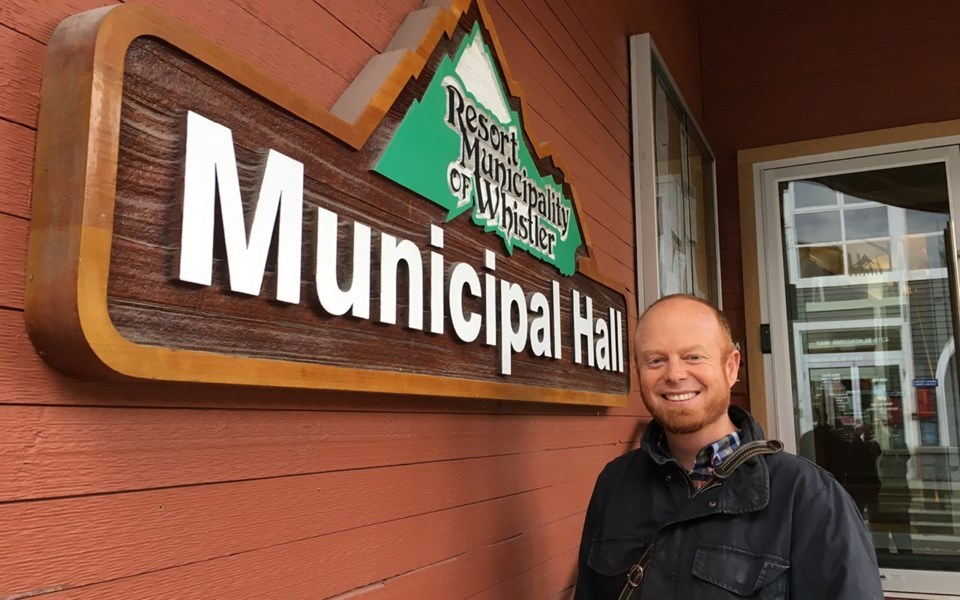Now that they’ve had a week to digest B.C.’s 2022 budget, Whistler leaders weigh in on what the latest round of provincial funding could mean for the resort.
Last week, Pique delved into the funds specifically earmarked for the tourism sector. This week, we look at monies set aside for other industries and initiatives relevant to the resort.
When asked what stood out for him in the budget tabled Feb. 22, Whistler Mayor Jack Crompton didn’t hesitate to point out what he saw as a glaring omission that was undoubtedly top of mind with the Sea to Sky transit strike now entering its fifth week.
“There isn’t any funding for regional transit or any local transit improvements,” he said of the corridor-spanning transit line proposed to connect Mount Currie to Whistler and Squamish that local leaders have been actively lobbying for since 2017. A funding model proposed by the Sea to Sky regional transit committee—made up of Whistler, Squamish, Pemberton, the Squamish-Lillooet Regional District and the Squamish and Lil’wat Nations—was ultimately rejected by the province in 2019. It was based on the current provincial/municipal cost-sharing formula for local transit: ridership fares, property tax and a motor fuel tax of 2.5 cents. A 2017 study pegged the total cost of implementing regional transit at about $3.31 million.
“They’re in the middle of an investigation of a Sea to Sky transit service,” Crompton added. “We will continue to make the case on the importance of transit for this region. It appears we will be waiting until the 2023 budget to see it funded.”
One of the biggest announcements out of last week’s budget was Victoria’s promise that parents with kids five and under will see daycare costs reduced to $20 a day by the end of 2023, part of the NDP’s long-touted commitment to achieving $10-a-day daycare by 2026. Although critics have questioned the province’s roadmap to get there, for a resort community with a shortage of qualified childcare workers and years-long waitlists to get into a daycare, the news is a step in the right direction.
“Daycare is always a welcomed initiative, both for accessibility and affordability,” said Melissa Pace, CEO of the Whistler Chamber of Commerce. “That will certainly support a strong, sustainable business economy here in Whistler to create more work if we have daycare at an affordable price.”
As head of Whistler’s largest business network, Pace also welcomed news of B.C.’s $21-million investment over three years to provide training in skilled trades and support uncertified workers to become apprentices or obtain their certification.
“That is certainly something for our construction, trades, hotels and restaurants that will be interesting to see how it gets rolled out, and what it could mean for our business community here,” she said.
As Cheakamus Crossing’s resident-restricted housing stock continues to expand, Crompton pointed to B.C’s plans to accelerate $100 million in spending through its Community Housing Fund as a potential funding source for the Whistler Housing Authority and the Resort Municipality of Whistler.
“Now it’s up to us to make a compelling case that some of that money should be invested here for Whistler workers,” he said. “Whistler is so well placed to access provincial housing funds having established the Whistler Housing Authority.”
Climate and wildfire mitigation were also top of mind for Whistler’s mayor, particularly in light of the extreme weather events that hit the province last year. Budget 2022 includes more than $26 million in capital funding over three years to upgrade BC Wildfire Service facilities, along with $98 million to pay for forest service road maintenance and protection work.
A further $145 million will be used to shift the BC Wildfire Service from its current reactive response model to a more proactive approach.
“I’m pleased to see year-round commitment to the BC Wildfire Service,” Crompton said. “B.C.’s climate investment needs to continue to grow. Municipalities are eager partners in the climate fight, but to play our role we need the kind of resources only the provincial and federal governments can provide. This is an example of that. As our summers get drier and hotter, that kind of continued focus becomes all the more important.”
Funding of $83 million was also set aside in the budget for, among other initiatives, expanding climate monitoring networks in B.C., developing an extreme heat response framework, supporting Indigenous-led climate adaptation initiatives, and building the data collection and know-how necessary to understand and mitigate climate risks.



.jpg;w=120;h=80;mode=crop)
